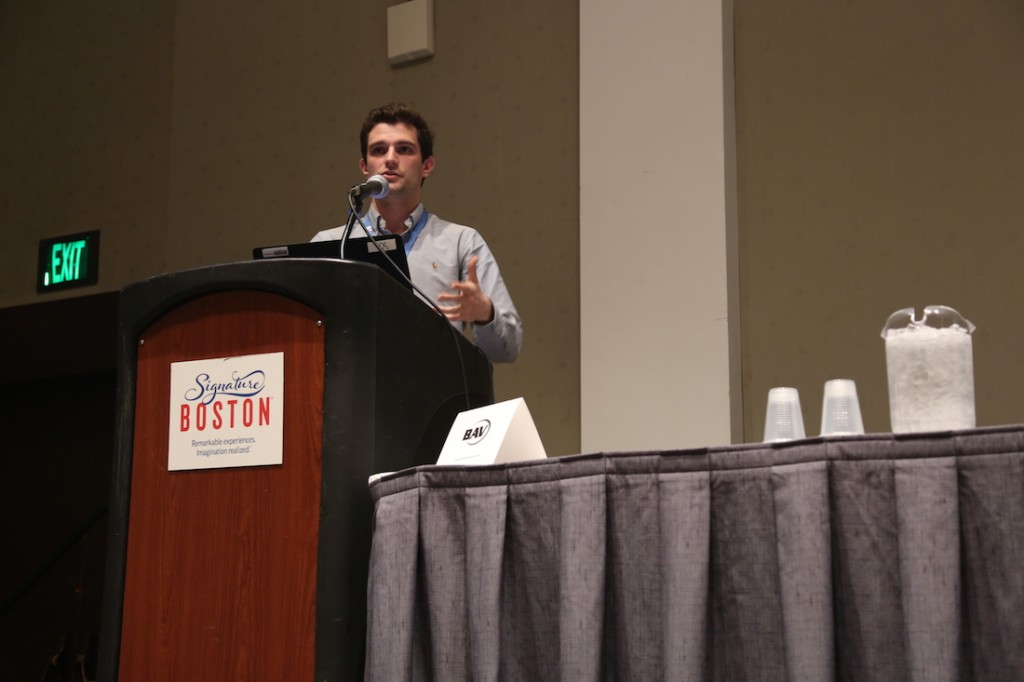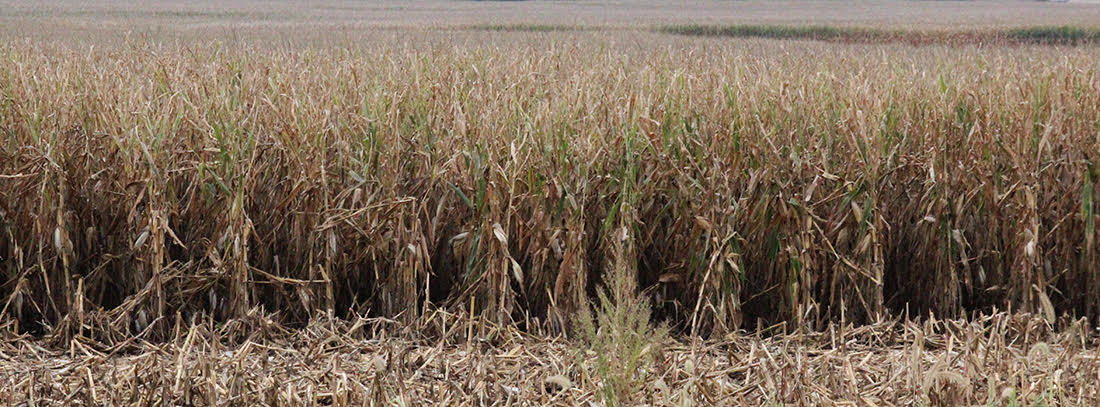
Joshua Jackson, researcher at the University of North Carolina, Chapel Hill, explained that heightened ecological threats like drought or famine could lead to more intolerant societies with stricter cultural norms. (Janice Cantieri/Medill)

Joshua Jackson, researcher at the University of North Carolina, Chapel Hill, explained that heightened ecological threats like drought or famine could lead to more intolerant societies with stricter cultural norms. (Janice Cantieri/Medill)
By Janice Cantieri
Rising extremes of droughts, floods or food shortages can reduce a country’s political stability and cultural tolerance, warned scientists at the American Association for the Advancements of Science conference in Boston this weekend.
As global temperatures continue to rise, these and other environmental threats are expected to increase.
“What you have here is a model where different forms of ecological threat are producing stronger cultural institutions,” but stronger in the sense of more regimented, said Joshua Conrad Jackson, a psychologist at the University of North Carolina, Chapel Hill. “That could carry over into intergenerational changes in cultural institutions.”
If a parent raises a child in a time of high ecological threat, they are likely to raise that child with stricter rules and regulations and tightened cultural norms, Jackson said.
A team of social scientists and climatologists presented their preliminary findings from surveys historical cultural and climate records. They found that higher rates of ecological threat generally lead to stricter, more intolerant cultural norms in a society and higher rates of violence.
Jackson, with Michele Gelfand at the University of Maryland, found that ecological threats like food deprivation, pathogen prevalence, and natural disasters lead to higher pressures to marry, more moralizing religions, and autocratic leadership.
Other researchers discussed the ability to detect the influence of past environmental changes on culture, and whether these changes affected a country’s political stability.
Eric Jones, an environmental anthropologist at the University of Texas, found that after events such as a natural disaster, people tend to band together for at least a short period of time. But if the ecological event is chronic or repeated, like a drought that lasts for years, there is “less to give” and less sharing and redistribution within the community, he said.

In prehistoric societies, ecological changes led to periods of political upheaval and violence, said Timothy Kohler, an archaeologist at Washington State University. After periods of extended drought in ancient communities like the Pueblo in the southwestern United States, Kohler found evidence of high rates of violent trauma on the bones and skeletal fragments in communities that had high rates of societal inequality.
It is especially difficult for communities to adapt to environmental change when their population grows because there are fewer available natural resources, he said. Many historians point to more contemporary events such as the droughts that created the Dust Bowl during the 1930s, when an estimated 40 percent of the population fled Oklahoma family farmsteads.
Leadership can topple as well.
“Climate events bring an end to regimes of relatively high inequality, but also are accompanied by violence. We need to be concerned with the degree of inequality as well as population density if we want to avoid violent outcomes,” Kohler said.
Kohler wrapped up the panel by discussing the implications for the future, where population and ecological threats are expected to increase.
“Thinking ahead to a world with 25 percent more people than we have now in 30 years or so, you could borrow a term from the 1960s — is this going to be a more uptight world than the world we live in now?”